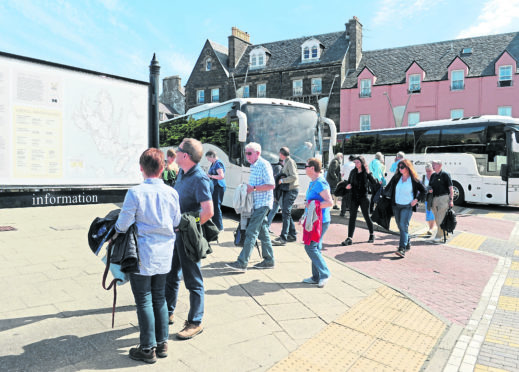Skye has one Airbnb letting for every 10 homes – a greater proportaion than in central Edinburgh, according to a study.
Last year there were complaints about staffing medical shifts on the island because so many part time nurses are involved in the holiday business.
Now analysis from the Chartered Institute of Housing (CIH) has named Skye as having one of the highest Airbnb densities and suggests that the rapid growth of short-term lets could lead to displacement of long-term residents from their communities.
The rapid growth of such lets has been a boon to tourists and landlords, yet it could lead to the loss of private rented homes to the short-term lets markets if left unregulated, says CIH.
The UK Housing Review 2019 suggests that Airbnb alone has over 77,000 lets in Greater London, 55.4 per cent of which are entire homes. The bulk of the lets are heavily concentrated in Westminster (8,328), Tower Hamlets (7,513), and Hackney (5,907) boroughs.
Edinburgh has over 10,000 short-term lets, with its city centre ward alone having two Airbnb lets for every 13 homes, while the Isle of Skye has one Airbnb letting for every 10 houses.
“The analysis makes clear from the concentration of short-term lets in particular locations across the country that the rise of Airbnb has been a highly localised phenomenon,” says CIH.
“It has created ‘globalhoods’ – ultra-desirable neighbourhoods drawing in visitors from across the globe at an ever-increasing rate.
“There would be cause for concern if these properties have moved from the private rented sector to the short-term lettings sector for part of each year, and even greater cause for concern if they were now permanent short-term lets, unavailable to locals.”
Commenting on the findings of the Review, CIH Scotland’s national director, Callum Chomczuk, said: “Digital platforms like Airbnb have brought great convenience to tourists who come to enjoy our cities and communities, as well as economic benefit to their local hosts. However, if left unregulated, there is a real risk of loss of much-needed housing from the private rented sector to the short-term lets market, and displacement of long-term residents.
“We need to find a way to accommodate the rights of individual residents and preserve neighbourhood amenity whilst also allowing the continuation of high-volume tourism in our most popular locations.
“More regulation could be necessary if growth continues and local authorities still have no way to accurately monitor numbers.”
CIH say practical suggestions for tackling the issues include ensuring that better data exist on short-term lets, so that local authorities can keep track of their growth and location. Airbnb have pioneered this in Barcelona.
